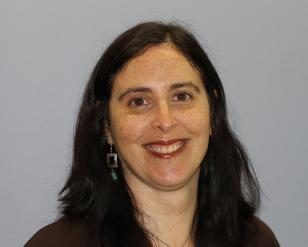Happy Summer! Summer at SSU is a time for reflection and planning for the next academic year. It's a slower time here, while in the community, work continues at its regular high speed. As a result, it's a time when I find I am least successful in addressing community requests.
Community partners contact me all the time with requests for collaboration. While the CCE is able to address some of these requests directly, generally, we serve as the next to last stop for connecting with others, both internal and external to SSU. Of course, you are always welcome to contact us directly to discuss collaboration. This blog post can help you to skip the CCE step and connect directly, if you so choose.
Why we refer out: I see connecting - with other resources within and outside of SSU as very much part of the "reciprocity" focus of our mission. My favorite part of my job tends to be when I get to see or help two or more community partners collaborate to address their own challenges. Generally, I refer outside the CCE due to requests being either unaligned with our academically focused mission, too time sensitive for us to reasonably expect to be successful, or for internships, which are handled by individual academic departments.
Speaking of interns, the most common request that I get is for interns.
You can learn more about how to recruit for interns here.
Often I get requests for support that don't distinctly provide students or faculty with clear academic learning. The work is, of course, still valuable and necessary and may provide the server with other valuable experience. However, since the CCE is part of academic affairs, our mission focuses on providing community collaborative academic experiences.
Sometimes I get requests that are quite academic in scope, but are simply too time sensitive for the CCE to serve as an excellent collaborator. Organizations regularly request support with strategic, marketing or business plans, program assessment, assistance with Board of fund development, etc. - roles that SSU service-learners have been quite successful fulfilling. However, as these service-learning projects are integrated into the course syllabus, if I get this request in the summer, the earliest a product will be completed is in December. If I get a request in August after the syllabi have been set up, the wait may be until May or beyond.
If you're looking to connect on shorter-term or less academic projects or have a time sensitive project consider:
- Join Us Making Progress (JUMP) the student community service organization, has a Service Days calendar. Be sure to contact ssu.servicedays@gmail.com early to get on the schedule. JUMP can also help you connect with fraternities, sororities and other student organizations that do community service. For more information, contact Natalie Frankel.
- The Volunteer Center of Sonoma County (VCSC) promotes volunteerism and strengthens community service efforts in Sonoma County. From one-day events, to court referred volunteers to the Retired Senior Volunteer Program, to the Expertise Exchange, connect with VCSC.
- If you are looking for support with a 6-8 week physical project, such as building, construction, or environmental restoration please consider connecting with AmeriCorps NCCC.
- If you have an event and want people to know about it, add it to the Sonoma County Community Events Calendar.
- If you are hiring professional staff, list your job.
- If you want to hire a student or recent graduation, list the position with the Career Center.
- If you are looking to get information out about your organization, consider tabling on campus.
- If you just want to know what's available, be sure to sign up for the CCE's Agency opportunities emails. This is the best way to make sure you are the first to know about collaboration opportunities.
Occasionally I am asked about how to recruit from other schools.
- What does SRJC do? The SRJC has a class that constructs web sites and others that provide other services. Please contact them directly.
- How about local high schools? All local high schools have community service graduation requirements. Contact them directly if you would like to learn their recruitment policies.
In conclusion, the CCE provides some things quite well and serves as the next to last stop for accessing the resources of SSU. Of course, you are welcome to contact us directly at any time and we will happily help you navigate the University.

